Western countries invest heavily in their military; as such, significant issues should be addressed both openly and seriously.
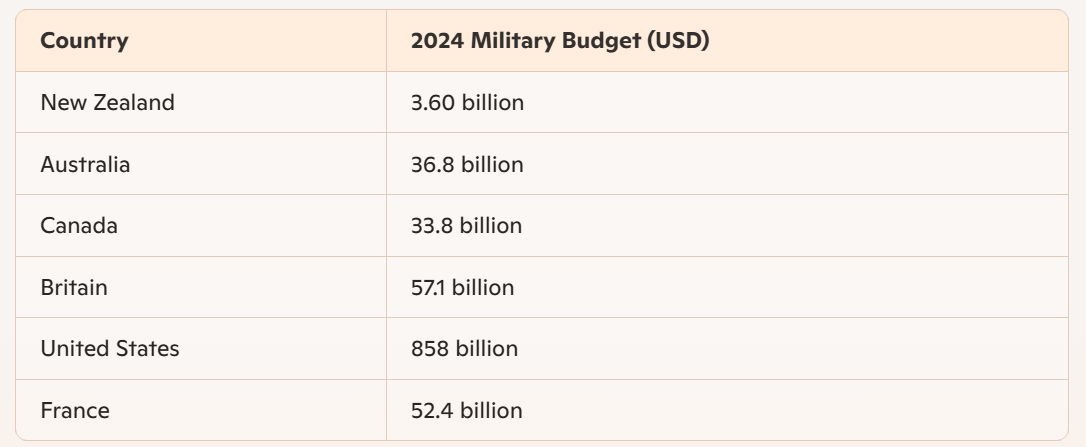
Click to view
The loss of a $100 million NZD naval vessel is significant but it’s disheartening that the focus immediately shifted to the commander’s gender and sexual preferences, sparking allegations of misogyny. This however overshadows the broader issue.
* The Manawanui disaster, although only 2.8 per cent of the NZ Defence Force’s budget, highlights deeper concerns about the effectiveness of ‘Diversity, Equity, and Inclusion’ (DEI) initiatives in the military.
The focus must return to systemic issues such as why recruitment numbers are falling and why readiness and capability are worsening. Military recruitment in Western countries is critically underperforming, yet this deficit goes relatively unremarked on in the public discourse. The underperformance averages over 20 per cent – which is unacceptable.
New Zealand, Australia, Canada, Britain, the United States and France all maintain militaries to protect their national interests, ensure territorial integrity and support global stability. These armed forces serve as a deterrent against potential threats, contribute to international peacekeeping efforts and provide humanitarian aid in times of crises. In an increasingly interconnected world, a strong military presence enables these nations to collaborate with allies, respond swiftly to emerging security challenges and uphold their commitments to global security and defence alliances. These are important functions, and they involve huge budgets and hundreds of thousands of jobs.
* If any other sectors of the economy were so badly
underperforming, it would be a matter of national discussion.
Of course there have been some discussions, mostly behind closed doors, and recruitment programs were organised to address the perceived issues. As examples:
Of course there have been some discussions, mostly behind closed doors, and recruitment programs were organised to address the perceived issues. As examples:
It is not hard to see a common thematic regarding these recruitment programs – they all focus on DEI – although that is not the only commonality:
In 1891 the Narcotics Anonymous Basic Text was published, compiling the experiences of thousands of recovered addicts. It introduced the phrase often attributed to Einstein:
“Insanity is repeating the same mistakes and expecting different results.”
Today, the idea of DEI is so idealised, almost with religious zeal, that many overlook the fact these programmes aren’t delivering the desired results.
* Most DEI programmes are almost impossible to benchmark and for many the outcomes are entirely subjective.
In these military cases, despite multiple DEI-focused recruitment programmes and behind-closed-doors discussions, they are failing and wasting taxpayers’ money, lowering public confidence and producing substandard results. Yet, we persist with the same ineffective approaches.
* Considering the shortfalls in recruitment we can’t afford to be turning down the willing and able based on prejudices.
Yet we keep putting our money on the DEI horse again and again. When will our military leaders recognise or admit that there is a time and place for ideological dispositions and the military is not one of these places?
* DEI, unless it means ‘Discipline, Efficiency and Integrity’, is a shoehorn fit for our military and it’s not working.
Aside from the obvious issues of standards being lowered, which is predictable, people have also been ‘turned away’ or ‘turned off’ from the military due to these policies.
In the case of ‘turned off’ – why join a military in which advancement based on merit is frustrated? A systematic bias based on race, gender or sexual inclinations exists and may in fact be mandated by HR. When trying to promote teamwork and unity, as is critical in the armed forces, one would think these inalienable characteristics are the very last things one would want to highlight, i.e., exacerbating the differences between us.
To illustrate ‘turned away’ we have the 2023 case of how the British Royal Air Force (RAF), under pressure to meet diversity targets, turned away what the recruiters labelled “useless white-male pilots” (despite them being more suitable) to hit these targets, allowing less-qualified women and ethnic minority candidates a preferential path to recruitment.
* Is NZ orchestrating similar undesirable outcomes?
This is reflected in the current self-assessments of our military:
* In the West, we are quickly approaching a situation where our military is ‘unfit for purpose’ and the fascination with DEI will not fix that.
This underscores the existential threat from opponents who view DEI efforts in our military as signs of weakness and distraction. Events like the invasions of Ukraine and Israel demonstrate that they feel emboldened to test our strength. They see these initiatives as confused, wasteful, harmful to morale and toxic to military readiness – ultimately to their advantage.
Beyond the military, they perceive similar moral and structural weaknesses across our support systems – whether social, industrial or otherwise. Many organisations worldwide, including thousands in New Zealand, need to curb the ideological excesses of DEI. A broad-church of local examples include:
- Police Force (e.g., unconscious bias training)
- Rotary (e.g., subversion of the “Four Pillars”)
- Department of Conservation (multiple programmes)
- Reserve Bank of New Zealand (DEI Centre of Excellence)
Action needs to be taken now to cull military DEI initiatives that are proven not to work. We need to initiate new, merit-based initiatives that will attract all and any of the ready and willing and provide them with equal opportunities for developing competence and a career. Maybe then this negative and wasteful trend will go into retreat.
Dr Michael John Schmidt left NZ after completing postgraduate studies at Otago University (BSc, MSc) in molecular biology, virology, and immunology to work in research on human genetics in Australia. Returning to NZ has worked in business development for biotech and pharmacy retail companies and became a member of the NZ Institute of Directors. This article was first published HERE


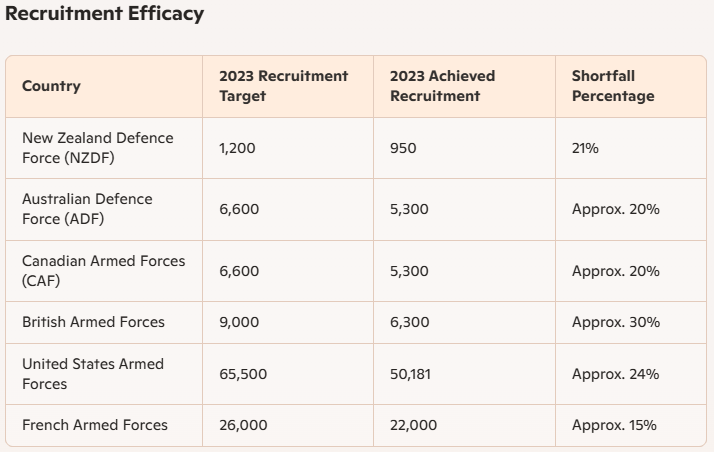
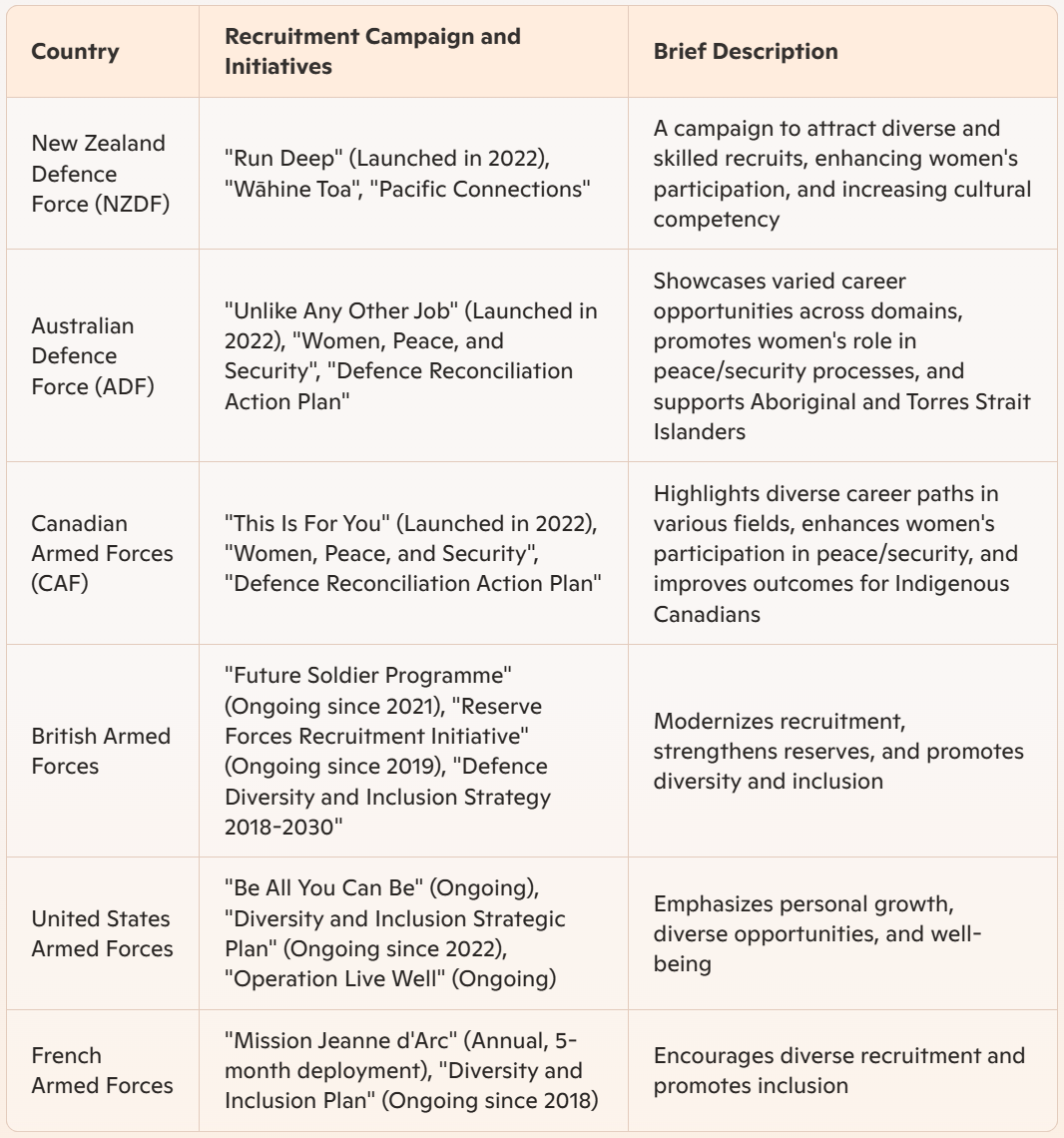
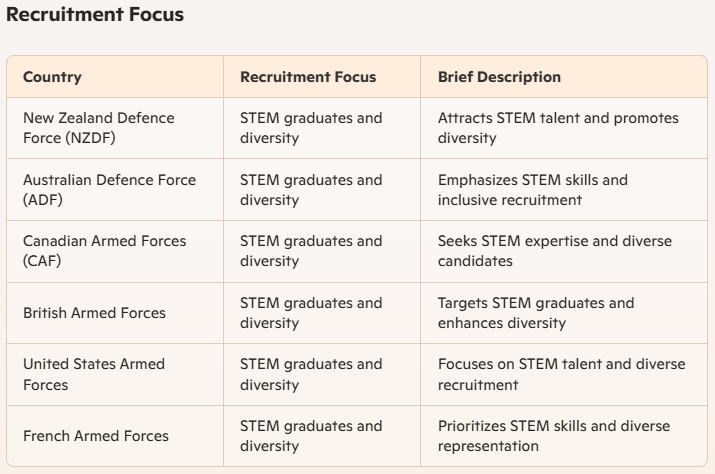
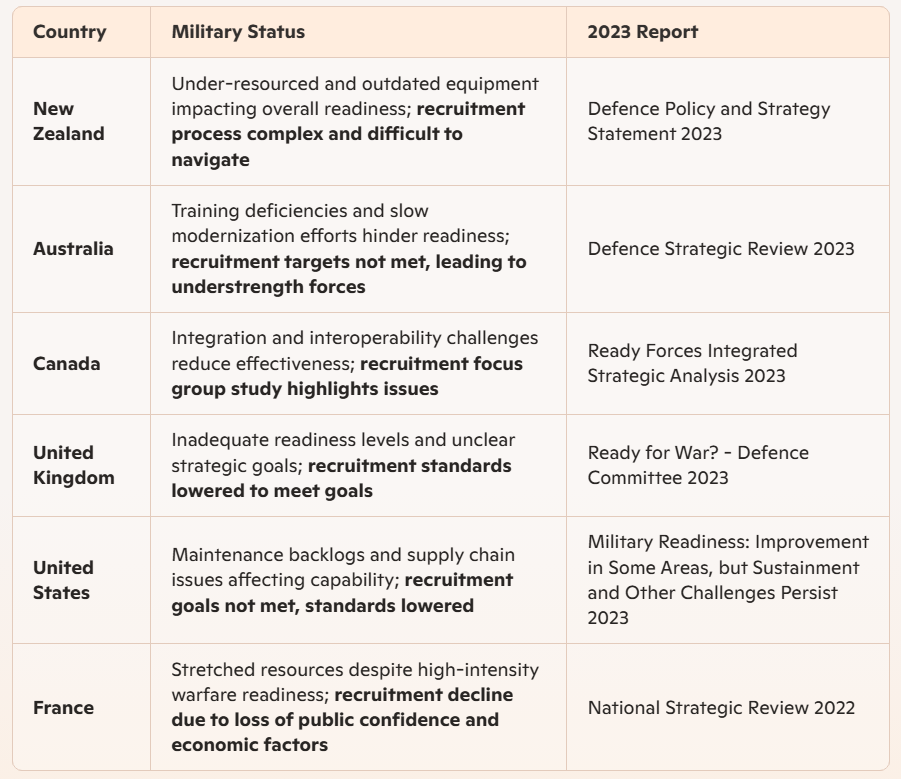
4 comments:
Research shows that a growing number of younger people would not be prepared to fight for their country. So why would they be worried about our military not being capable, let alone joining it.
What is amusing is that this same group supports the fight in Ukraine. They are happy to urge others to die in support of their country, but would hide behind the sofa if asked to do the same.
Dr Michael, you are absolutely right to question the idiocy behind the management of our military forces. And I say this having served three active service tours, one with NZSAS and two to South Vietnam. I agree completely that the DEI or perhaps that should be DIE being relentlessly imposed on the services is hugely to be blamed for the apparent steady deterioration of the standards and capabilities that I was once so proud of. However…have you thought that perhaps this might be quite deliberate. Odd I know to work towards destruction of a capable defence for your nation. But compare it with the last4-5 years when the same pattern played out on our whole nation, economy and population included. Every military depends on being a ‘band of brothers’. That is no longer possible in today’s twisted and deceitful world.
Your comments are so true Dr Schmidt. The holy grail should be success of the mission, not pandering to personal feelings. Woke senior Officers are mainly to blame. They should be looking out for the Service. Women on ships was always considered bad luck by sailors; with good reason. Unwittingly they become a distraction to males and the mission suffers. These days ships can be at sea for months and nature will take its course. Whoever in the RN thought it a good idea to have women aboard a nuclear submarine under sea and everyone in confined living quarters for months on end! Why not have all women crews if they are keen to be at sea.
The grins on the faces of the Ministers of Defence of China and Russia are getting wider by the day. The main threat the opposing armies will soon present is throwing their soldiers into stitches of laughter.
Post a Comment
Thank you for joining the discussion. Breaking Views welcomes respectful contributions that enrich the debate. Please ensure your comments are not defamatory, derogatory or disruptive. We appreciate your cooperation.